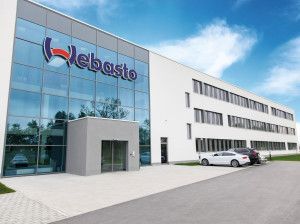Jaguar Land Rover Introduces A New Contactless Touchscreen Technology That Helps Reduce Spread Of Viruses And Bacteria


-
This new technology is another step towards Jaguar Land Rover's Destination Zero vision, which is primarily focused on safer and environment-friendly vehicles.
-
It was built in collaboration with engineers from the University of Cambridge.
-
The contactless touchscreen is known as 'predictive touch' technology.
In a world where social distancing and self-protection in some form is the new normal, 'contactless' has become a keyword, especially in the auto industry. On the lines of this, Jaguar Land Rover (JLR) has developed a new patented technology: a contactless touchscreen. JLR plans on killing two birds with one stone with this new development. The technology will not just reduce the spread of bacteria and viruses but also reduce the amount of time the driver will spend using the screen.

The patented technology, known as 'predictive touch', has been developed in collaboration with engineers from the University of Cambridge. The process behind this is very simple, or at least the explanation of it is. With the use of artificial intelligence, it can determine what the user wants to select based on inputs received early in the pointing task. An in-built gesture tracker uses vision-based or frequency-based radio sensors to compile data which, combined with data from an eye-gaze tracker and user profile, will adapt to the user's intent in real time.

In other words, the technical mumbo jumbo will basically use the user as a data point. The main aim of introducing this predictive touch is to reduce the contact with an interactive display, the kind of which most of the world is dependent on these days. Another advantage is that the interaction between the driver and the screen will be significantly reduced, making it safer by ensuring that the driver is constantly focused on the road. On-road trials and numerous tests have determined that the time and effort put in by the user during this interaction could be reduced by almost 50 percent.

Technology like this will be beneficial towards safety in more than just one way. Reducing repetitive contact with different surfaces is more important now than it has ever been. Making the drive less distracting is part of Jaguar Land Rover's Destination Zero vision which aims for a safer and environment-friendly driving experience.



No comments: